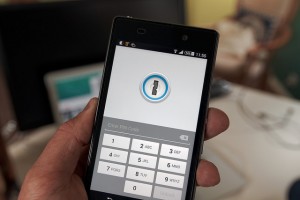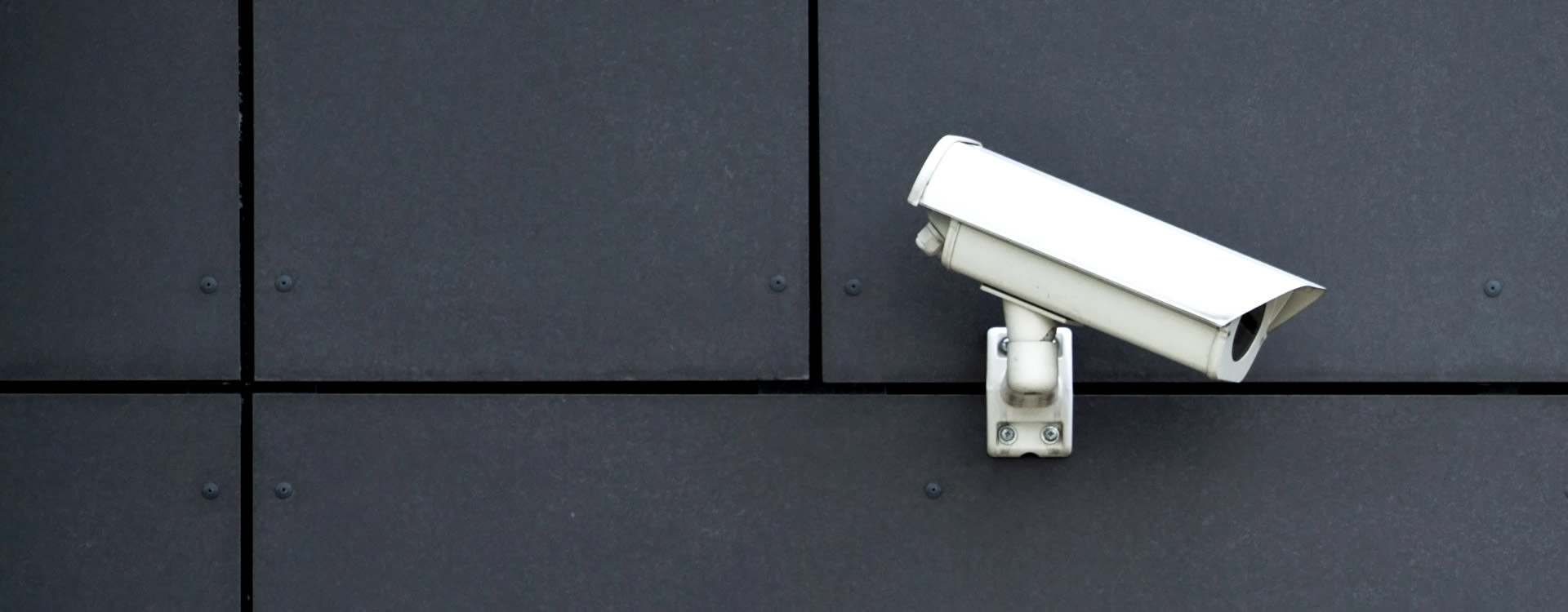 As a business owner protecting your facility is always a top concern. Are you getting the coverage you need? If you have a comprehensive security system you’re already in a good position. However, a security system is only as good as the sum of its parts. One of the most crucial parts of a security system is the surveillance aspect. Surveillance systems are the eyes that keep watch over your business even when you can’t.
As a business owner protecting your facility is always a top concern. Are you getting the coverage you need? If you have a comprehensive security system you’re already in a good position. However, a security system is only as good as the sum of its parts. One of the most crucial parts of a security system is the surveillance aspect. Surveillance systems are the eyes that keep watch over your business even when you can’t.
Like any other technology surveillance equipment is constantly evolving through research and development that is meant to improve its efficiency. In today’s IoT (Internet of Things) IP-based (Internet Protocol) systems are a driving force that is changing the role of surveillance in comprehensive security. But not everyone is so keen on the uptake. Prior to the inception of IP cameras and network devices the world was and has been dominated by analog cameras and DVR devices (Digital Video Recording). If you have existing surveillance equipment, chances are it’s a legacy analog system, which is why its important for you to start bridging the gap from an analog to an IP camera system.
While the IP surveillance trend is picking up, there are still more than 40 million analog cameras in operation around the world today. Making the switch from analog to IP isn’t an easy transition for everyone and integrators have become increasingly aware. Fortunately there are hybrid solutions that allow you to work with your existing analog infrastructure and start your migration to an IP-based system. At Perfect Connections, Inc. our team of licensed integrators work with you to provide comprehensive security solutions that meet your needs. Our experts have been providing comprehensive security system solutions, including surveillance, to businesses throughout northern and central New Jersey for that past 23 years. We recognize the value technology adds to the security systems we install and how they can benefit our customers.
Why replace an analog system? To be fair, analog systems have filled a security need since the beginning of surveillance that would have otherwise gone unfulfilled. But just like any technology, progress is always pushing the envelope of what is relevant and effective. Look at smartphones, they are constantly evolving, every year a new model with new features that jettisons society forward. While businesses aren’t necessarily turning over their surveillance systems at the same rate, the growing trend is leaning towards IP and network based solutions.
Hybrid solutions for companies that aren’t ready to make the full switch to IP just yet offer the benefits of a more effective system that will ease the transition when the time is right. According to Mark Collett, general manager of Sony Security Systems Division, “With hybrid solutions, you can get the best of both worlds—the near-zero latency of analog plus IP’s HD imaging quality.”
Video encoders are the catalyst for the hybrid solution, replacing out of date and expensive DVRs. DVRs were traditionally responsible for storing and recording footage captured by connected surveillance cameras. According to James Marcella, a technologist in the security and IT industries, a video encoder is, “an open-platform technology that acts as a bridge between the analog and digital world by essentially turning an analog investment into IP cameras.” Video encoders would allow you to make use of existing infrastructure by attaching to the coaxial cable from you analog system, transforming the analog signal into a digital stream.
Many industry experts consider DVRs to be one of the most expensive pieces of equipment the consumer will purchase, and they are typically outlived by the analog cameras. Also, they are not dependable, if they go down so does the whole surveillance system, and this could happen at a critical moment. Video encoders are capable of running on power over Ethernet that can be tied to a backup power supply, keeping you covered no matter what. You can also employ redundancies like NAS devices (Network Attached Storage) and SD memory cards to help prevent recording loss.
DVRs lack the image resolution, edge intelligence, and network capabilities that a video encoder can offer. The frames per second rate (fps) is what creates a smoother clearer image, the higher the better especially in high motion scenarios. Video encoders are capable of capturing images at up to 60fps whereas DVRs only go up to 15fps. DVR intelligence is typically limited to whatever the manufacturer specifications have been set to. Video encoders open the door to third party intelligent applications which allow you to choose video management software from virtually any provider in the connected world. This creates a platform for advanced video analytics.
There is a large storage and scalability disparity between DVRs and video encoders. DVRs typically have a low tolerance for the quantity of cameras they can accommodate which can leave a business vulnerable by not being able to cover risky areas. On the other hand video encoders offer virtually limitless retention by being highly scalable. Video encoders have the ability to accommodate single cameras and there are some units that can accommodate up to 84 cameras making them a highly flexible and effective solution for a large or small facility.
The hybrid solution allows you to keep existing analog cameras and infrastructure and as the cameras die or warrant replacement, they can easily be swapped out for IP creating a smoother transition. Remote monitoring is another benefit to opting for a hybrid solution. This adds a level of security you can’t obtain from an analog system, being able to login to your surveillance system to see what is going on at your facility when you can’t be there.
Hybrid solutions are an economic and less disruptive option if you’re not fully committed to taking the IP plunge, even though progress will continue to push us in that direction. If you opt for a hybrid solution or aren’t sure what to do always consult a licensed professional to ensure proper application and installation. At Perfect Connections, Inc. our licensed integrators have been providing comprehensive security solutions to businesses throughout northern and central New Jersey since 1992. We can guide you through the process of creating a system that meets your specific needs, from an initial assessment to final installation.
If you live or run a business in Central or Northern New Jersey and would like information on any of the topics discussed above, please call 800-369-3962 or simply CLICK HERE.
Image Credit: Image by Mike Mozart-Flickr-Creative Commons

 No business is immune to risk or unpredictable circumstances. In an emergency, often times, there’s an influx of panic for those involved. Our dedicated and hardworking emergency responders-firefighters, EMTs, ambulance, and police-are the ones who keep a strong front and are prepared to help us through these tough situations. As a business owner wouldn’t it be great if there was a way to lessen the constant fear of unknown threats to your organization? Fortunately, there is something you can do for your business, your employees, yourself, and the responders. Be prepared and have a plan.
No business is immune to risk or unpredictable circumstances. In an emergency, often times, there’s an influx of panic for those involved. Our dedicated and hardworking emergency responders-firefighters, EMTs, ambulance, and police-are the ones who keep a strong front and are prepared to help us through these tough situations. As a business owner wouldn’t it be great if there was a way to lessen the constant fear of unknown threats to your organization? Fortunately, there is something you can do for your business, your employees, yourself, and the responders. Be prepared and have a plan. We use our smartphones and other mobile devices for many functions in our daily lives. It’s almost impossible to go through an entire day without seeing someone tapping, scrolling, or swiping through their phone, never mind using your own phone. We’ve created a mobile environment where convenience lies in the palm of our hands.
We use our smartphones and other mobile devices for many functions in our daily lives. It’s almost impossible to go through an entire day without seeing someone tapping, scrolling, or swiping through their phone, never mind using your own phone. We’ve created a mobile environment where convenience lies in the palm of our hands. Fire is an unpredictable force that can wreak havoc on any business. It is imperative as a business owner, facility manager, or building owner that the proper precautions are in place to help prevent catastrophe. The
Fire is an unpredictable force that can wreak havoc on any business. It is imperative as a business owner, facility manager, or building owner that the proper precautions are in place to help prevent catastrophe. The 


